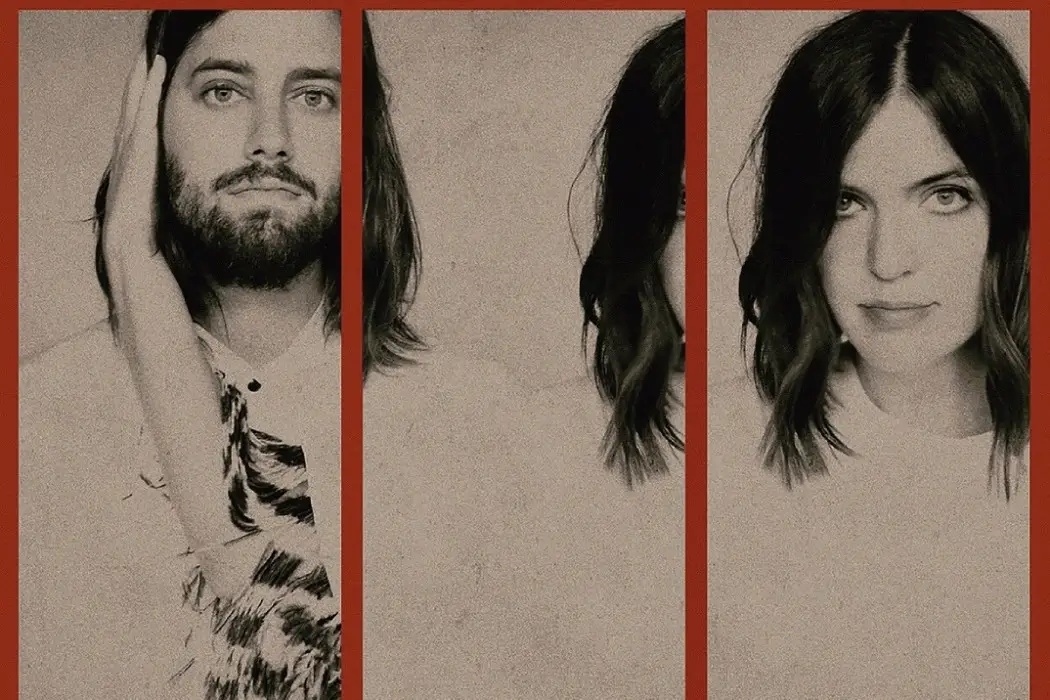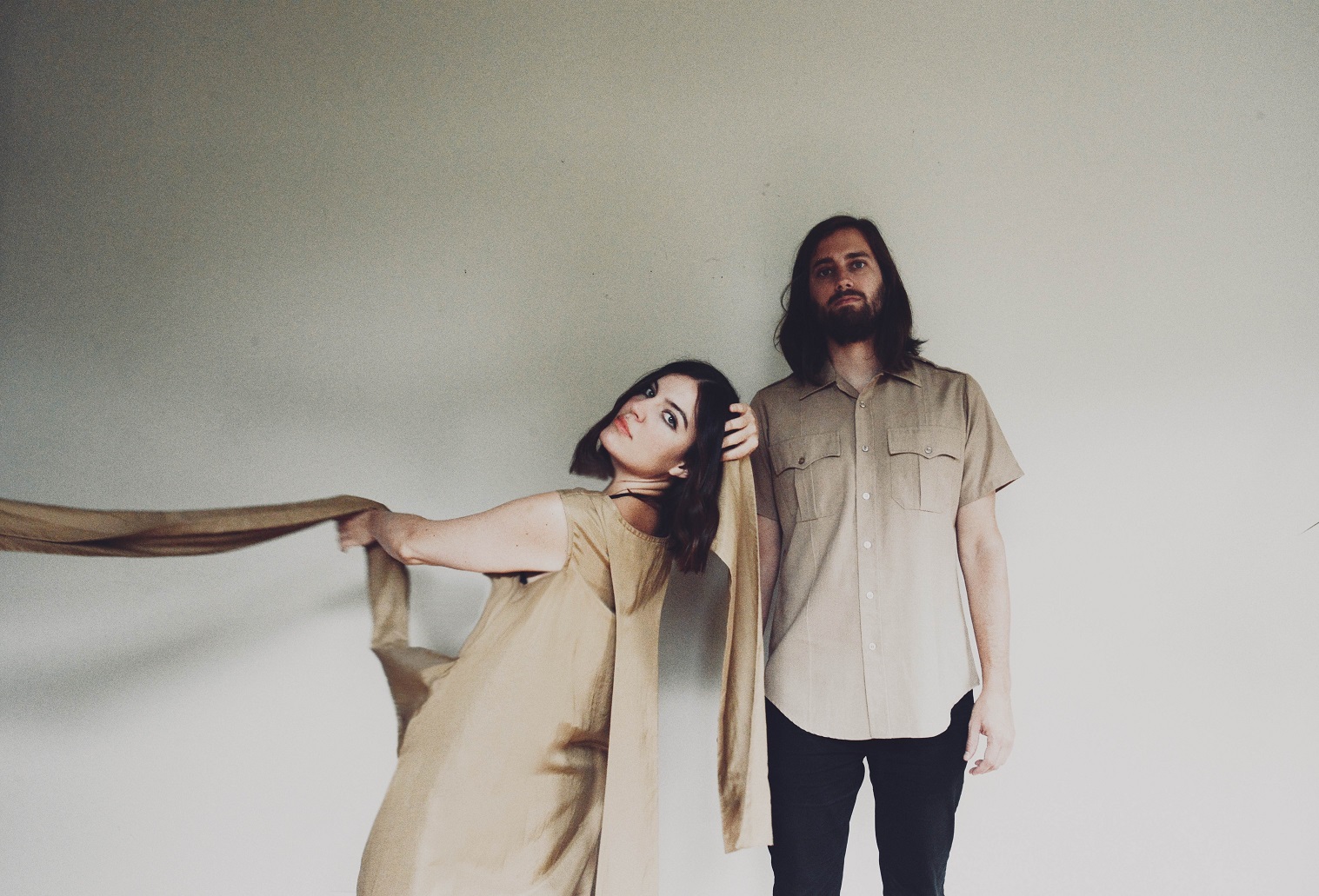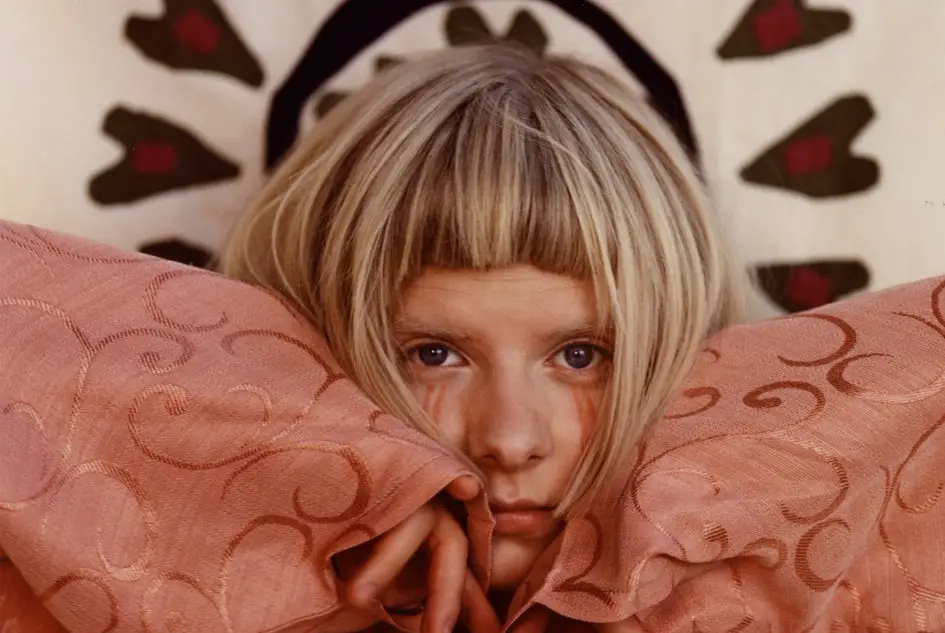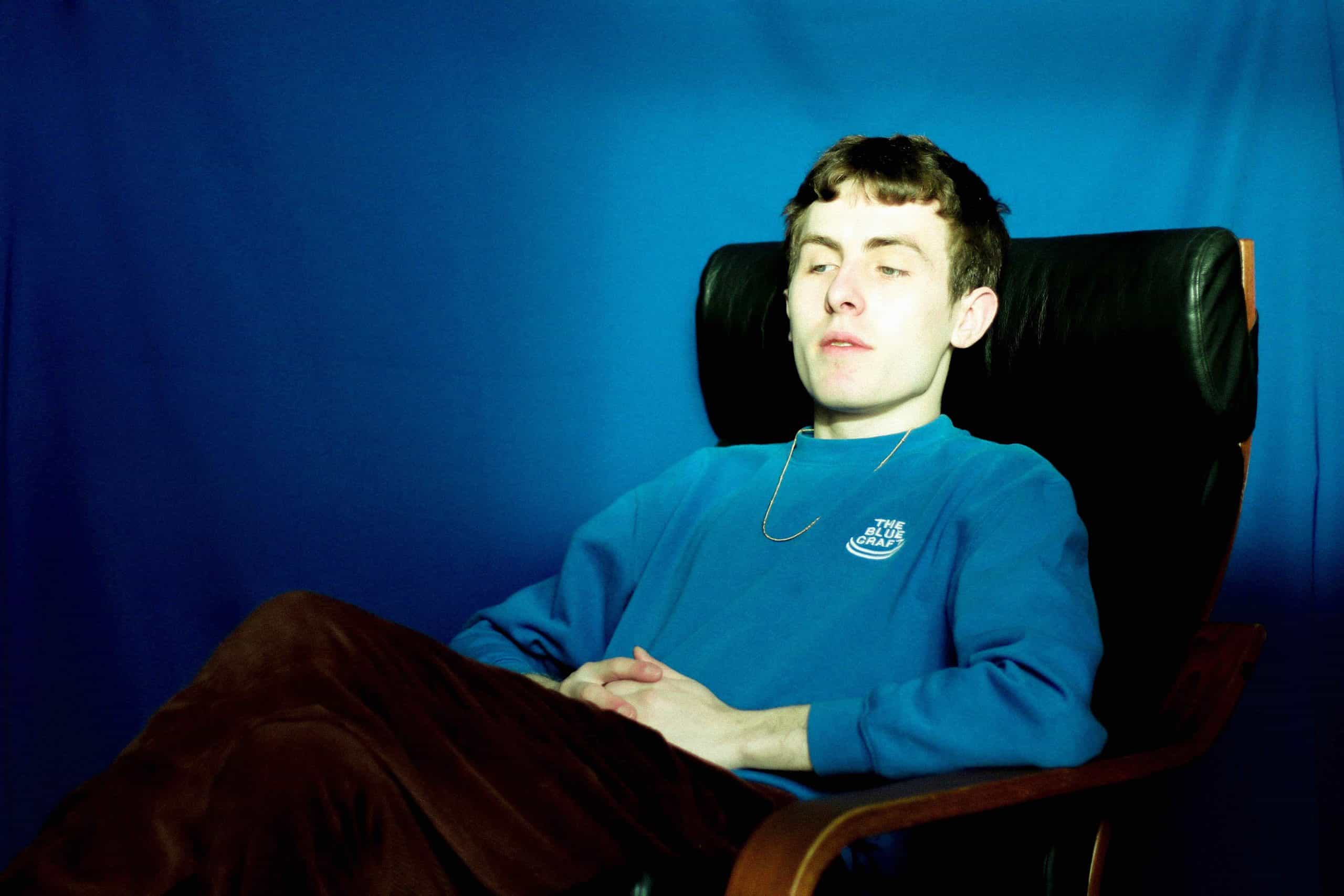Frances Cone discuss their instinctual and immersive album ‘Late Riser,’ a rare cathartic experience that replenishes the soul.
I just mostly want to make music that lives in your gut and that is smart. But not smart in a way that moves it from your heart to your brain.
Frances Cone is a collaborative, indie pop effort led by creative couple Christina Cone and Andrew Doherty. Their recently released sophomore album Late Riser (January 18, 2019) is about growing pains at its core — the little failures and challenges that are intrinsic to the human experience. Despite varying in influence and specific style of sound, each one of Late Riser’s ten tracks hits you in your heart and your gut. It’s honest and it’s alive.
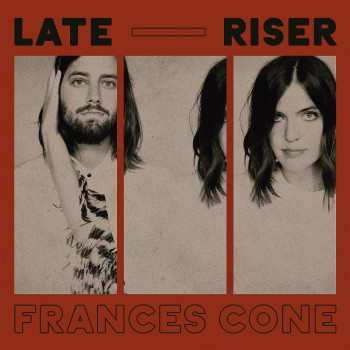
Cone and Doherty moved away from Brooklyn, where time moves so quickly “you feel like a goddamn super hero if you went to the bank and the grocery store in the same day,” to Nashville where a self proclaimed “late person” like Cone can get away with showing up a couple minutes behind schedule. In Nashville, without the bustle, “you have room — there’s more space in your brain and more physical space to create.”
“Failure” more than anything I’ve ever written is a product of a new instrument and that I had and a new environment.
A testament to trusting the process and allowing a project to take shape at its own pace, “Failure” resonates with the creative space Frances Cone found in Nashville. Built layer by layer, “Failure” vibes like a brainchild of Lake Street Dive and Tame Impala. Its groovy bass line and harmonic nuance likens it to the former, and its euphoric swells of lush, dreamy soft-rock sounds liken it to the latter. Cone had a vision for “Failure” back when it was merely a couple ooo’s sung in the reverb-heaven of her empty, pre-furnished Nashville home. Even after having a semi-complete mix, a layer was missing. She wanted the hook— I can’t get high enough to— “to feel overwhelming…to not feel so good and bigger.” Dan Molad added some strings to the mix and by magically creating the intended feel was able to see Cone’s vision through.
Frances Cone create “in terms of feel— [often the] feel of Chopin and how long some of those pieces can make you wait to feel good.” You can’t help but take flight when each song hits their feel-good-Chopin-moment, like in “Arizona” when Jeff Malinowski’s guitar riff soars and euphoria ensues. The album begins with soaring, glittery harmonies and currents of guitar magic on “Wide Awake,” a song that reflects Frances Cone’s Justin Vernon touch— profound, but simple lyrics that redefine themselves with every repetition. Cone is a lyrical prophetess. She writes lyrics so instinctual it’s as if they just fall out of her brain and right into place.
She explains: “I personally like music that isn’t too specific so that everyone can place themselves in it and not even too specific to me but like to specific to a time. Some of these songs mean something totally different to me now than when I wrote them and I really like that and I want that to be available to everyone.”

“Unraveling” shines with a softer percussive approach highlighting Cone’s cathartic vocal performance. Perhaps the most beautiful articulation of growing pains on the album, choked up with miles to go, followed by, over a million signs to blink and let it go, capturing what growth really is— forbidding life to consume you, letting go of the little failures, allowing the unraveling to change us and using that change to move forward. Half way into “Unraveling” immersive lush textures overwhelm to the point of suffocation and then release at just the right moment making for a therapeutic experience.
Lately I’m unraveling
Lately I’m unraveling slow
Oooo and it calms me
Oooo it calms me
To let it go
“We play “Unraveling” first on tour because it really is just so calming to me,” Cone explains. “By the time I get to the end of it, when it can be in first person, the lyrics reflect exactly what’s happening in the moment — I’m learning to be comfortable with the audience and I’m learning what their vibe is… It helps me allow myself to relax and be present.”
The album comes to an end as the melody of the “Arizona” chorus reappears on the last track of the album “All Along,” poetically tying together two songs inspired by Christina’s relationship with her brother and her mother respectively. “All Along” grounds the album in the steadfastness of familial love— perhaps the only the only certainty that you trust blindly in this life. No relationship is perfect, but with family, it’s for the love and for the long run.
Frances Cone’s breathes new life into our suffocating world with the presence and authenticity of Late Riser — an album so instinctual and immersive it practically defies time altogether. Atwood Magazine got to chat with Christina Cone about Late Riser and what Frances Cone has been up to in the days following the album’s release. Read on for the full interview!
:: stream/purchase Late Riser here ::
A CONVERSATION WITH FRANCES CONE
Atwood Magazine: When you are composing a song, how much are you thinking about, or utilizing, your classical training? How many of your musical choices are consciously grounded in music theory?
Christina Cone: I’m not consciously thinking about theory because I never wanted to get too music school-ish with what we put out into the world. I think I just mostly want to make music that lives in your gut and that is smart. But not smart in a way that moves it from your heart to your brain. I consciously try not to make it too theoretical. But I do think in terms of feel— and the feel of Chopin and how long some of those pieces can make you wait to feel good. I want the focus to be on the feel not necessarily how cool the chord changes are.
In your track-by-track interview with Consequence of Sound, you talk about many of your songs have a multi-perspective lyrical narrative— a story told not just from one character or one voice. Like for instance, in “Unraveling” you combine your own confessional voice with many other different perspectives. Can you talk a little bit about that? Where do these other perspectives come from? Are they created in your mind or based off of experience and collaboration?
Cone: There’s two characters in that song and then myself at the end. The second character is pretty specific in my head because its based on a few people I know who are scared to travel. They always have been and, in a way, that affected family and their lives. That whole idea of being scared to get on a plane and it not being about the fear of the plane going down but just the fear of traveling. The other character I just made up in my head. I definitely think about the imaginary— it’s based on me— it’s based on people I know— it’s all over the place.
What is it that you hoped to communicate through this album?
Cone: I personally like music that isn’t too specific so that everyone can place themselves in it and not even too specific to me but like to specific to a time. Some of these songs mean something totally different to me now than when I wrote them, and I really like that and I want that to be available to everyone.
How did you feel about releasing Late Riser compared to releasing Come Back in 2013 and did your expectations for how the album would be received differ this time around?
Cone: It’s different. With the release of Come Back I was just experimenting. I wanted to put some songs out into the world. This release definitely felt bigger than that but you just never know. I have no expectations. I remember at the end of tour on December first just hoping I get the opportunity to do this again. I hope that enough people like this record so that we get to go play for people. There is just so many different facets of reception— there’s Spotify streaming. But behind those playlists are just people and maybe they’re going to like the record or maybe they’re not. Maybe there will be success with streaming, and maybe there won’t be and that’s okay too. And then there’s like are people going to want to take us on tour? Are we going to headline? I would rather open for someone because that makes sense for ears that haven’t heard us to hear us. The radio has been the thing that has been most surprising. I wasn’t sure if we would be able to be a radio band and radio is working out really well— better than streaming. I mean, streaming is going fine but I’m not going to like invest in the stock market because of it. It’s a whole different game. I’m more interested in the real people game and that’s what touring is. People can be so successful with streaming and then maybe three people show up at a show. At this point, I just want the real people and if that means that numbers are less impressive than that’s just a different version of success.
Some of these songs mean something totally different to me now than when I wrote them.
How has living in Nashville informed your sound? How does your creativity differ in Nashville compared to Brooklyn?
Cone: Space. It’s a double edge sword because it’s so much harder to live in Brooklyn day-by-day. I think I thrive on that. I liked that it was hard to go to the bank. Like if you went to the grocery store one day AND the bank you felt like a goddamn super hero. Here in Nashville, going to the bank and the grocery store it’s like okay well that took 45 minutes. Now I’m just home. So I liked that part about Brooklyn. Being consumed with everyday tasks can take away the space in your brain that can conjure up anxiety. That was one of the things I was worried about moving here. So far it’s been fine. I’ve been pretty busy and been on tour so I don’t feel like I’m like going insane with the space of the day. Yeah, like what I was saying about “Failure” that’s the benefit of being here. You know, you have room—there’s more space in your brain and more physical space to create.
“Unraveling” is a highlight for me. How did this track come to life and what inspired this concept of unraveling?
Cone: It was written smack in the middle of the whole process. I feel like sometimes, even with “Wide Awake,” that chorus you call me you call me you call me a fool, sometimes you know I just put lyrics in a spot. They just fall out of my head and then I end up really liking them. Unraveling lyrically initially just sort of birthed itself and that song we play it first on tour because it really is just so calming to me. It’s been a couple years now so I feel separate enough from it. I’m not worried about every moment, it’s sort of become its own thing and so its kinda comforting to play it first every night. By the time I get to the end of it, when it can be in first person it’s kind of like it just is literally what’s happening in the moment— like I’m learning to be comfortable with the audience and I’m learning what their vibe is and all the while I’m playing this really emotional song. It just helps me allow myself to relax and be present. I keep thinking maybe we should change our setlist but I don’t want to I really like playing that song first and I think it really helps me.
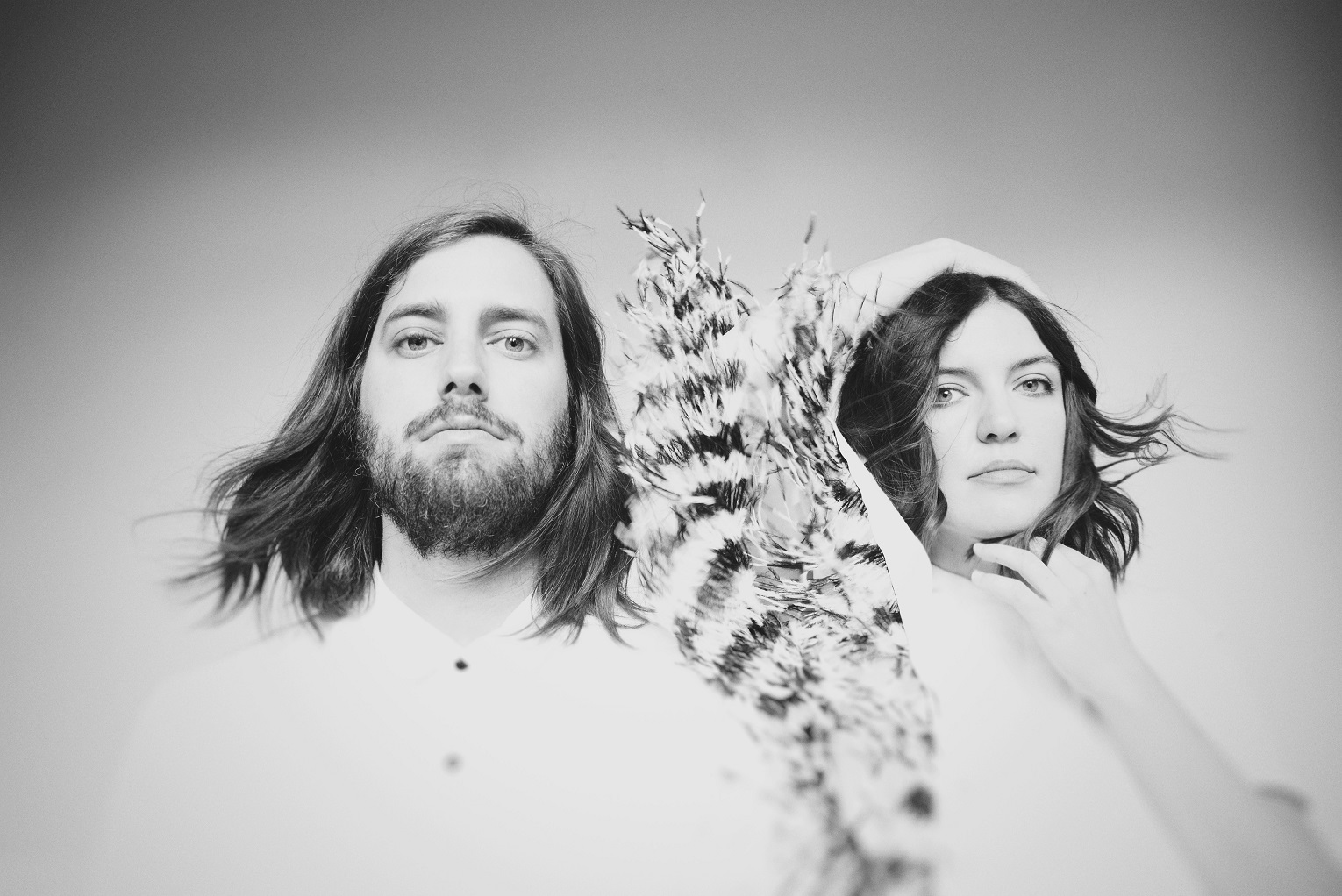
What inspired “Failure” and which layer of this song came first?
Cone: That song in particular was such an art project song because I had it all in my head and I didn’t have the words or the skills to express it so I really just botched it on the acoustic guitar in the studio one day. I was just like we are gonna make a song that sounds kind of like this. They trusted me and just let me go for it. It’s the first thing I wrote was on the baritone. Then Andy put that fun bass line in and then Josh started adding things too. And then we sent it to Danny in LA and I told him the part of it that was missing to me was the the I can’t get high enough to part. I really wanted that part to feel overwhelming. I wanted it to not feel so good. Feel bigger and not necessarily in a pop song way. And then he sent me the mix and had put those strings on it and I was like yes you did it! You did the thing! So that’s how that happened and then it was a whole song. The ooo’s happened because we moved into this house in Nashville and there was no furniture in it so the reverb made me feel like I could sing anything. And I don’t think that song would’ve happened if I was in my apartment in Brooklyn because the space is so limited but here nobody can hear me I’m alone. This song more than anything I’ve ever written is a product of a new instrument and that I had and an environment.
How does one take their time? What has worked for you? How do you fight personally and societally imposed expectations?
Cone: I think I have a really weird innate sense of time. Like in a more everyday way, I don’t really have a sense of time. Andrew would answer this question very well. Like he’ll look at me and be like you don’t know what you’re doing. Like I’m a late person and I hate that about myself. I’ll give myself a lecture but time is a little looser here in Nashville. It’s easy to go everywhere so people aren’t mad at you if they wait for you for ten minutes. So that’s nice. And I do know that it is disrespectful to be late. I see it in my Mom. I’ll go home and just watch her behavior and she’s just like me. She’s just doing the thing that she’s doing and her brain doesn’t have a concept of the greater hours of the day. She’s also like a late person. She’s just doing her thing. You know and I just keep thinking that one day I’ll be one of those people that I hear about who are like yeah just one day I started waking up at 7am. I just don’t think that’s ever going to happen to me and it never happened to my Mom. She’s been a public school music teacher for thirty years and she hated every single day that she had to get up early and drive. It never got normal— she never was able to not set an alarm and just wake up. That’s never happened to her. So I just don’t think that will happen to me. And more overarching, my brother is older than me and he sort of set the precedent that we aren’t gonna do things exactly like it might be like not comfortable for people around us— mainly our parents— to witness. Like the normal structure of society— like when you’re supposed to get married and when you’re supposed to be stable and all that stuff. He sort of lead the path for me to not feel like that had to be my life. And then every now and then you’re like oh man but women do specifically have a timeline— for when they can do everything. Like if you want to have kids that come out of your body there is like an actual physical portion of that and that really sucks. And so every now and then I start thinking about that because that’s not the same for my brother. Generally, you know, I’m just happy to live in my own little land.
— —
:: stream/purchase Late Riser here ::
— — — —

Connect to Frances Cone on
Facebook, Twitter, Instagram
Discover new music on Atwood Magazine
? © Shervin Lainez

